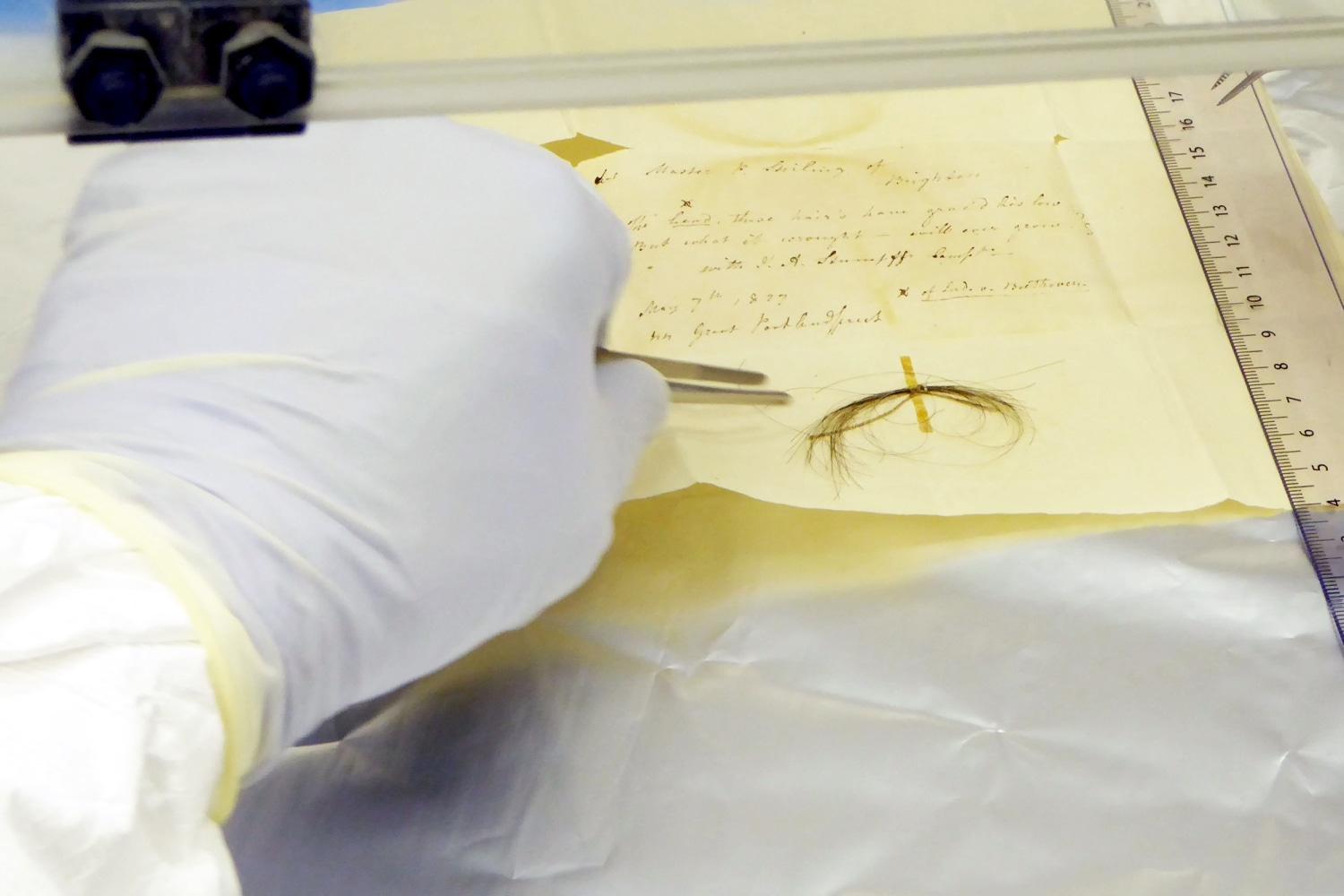After nearly two centuries of mystery, the question that has haunted historians, musicologists, and medical experts alike has finally been answered — and the truth is darker and more human than anyone imagined. A new DNA analysis of Ludwig van Beethoven’s authenticated hair has revealed that the legendary composer’s death in 1827 was not caused by poisoning or foul play, as long suspected, but by a devastating combination of genetic liver disease, chronic hepatitis B infection, and years of heavy drinking.

The international study, led by the University of Cambridge and the Max Planck Institute for Evolutionary Anthropology, marks one of the most significant breakthroughs in forensic genetics applied to historical figures. Using five authenticated locks of Beethoven’s hair, scientists pieced together his genetic profile — uncovering multiple mutations associated with liver failure, including variants in the PNPLA3 and HFE genes, both known to accelerate cirrhosis.

Adding to the tragedy, the team detected hepatitis B virus DNA in his hair, confirming that Beethoven suffered from a chronic infection that would have relentlessly attacked his liver. Combined with his well-documented alcohol consumption, the findings point to a fatal “triple threat” — a perfect storm of biology, infection, and lifestyle that ultimately led to his painful death at 56.

This revelation dismantles centuries of speculation. Earlier theories suggesting lead poisoning, mercury exposure, or physician error have now been debunked — in part because one of the most famous “Beethoven hair samples” was proven to belong to a woman of Ashkenazi Jewish descent, not the composer himself. With that error corrected, the real story could finally emerge, one rooted in science rather than myth.
Perhaps the most haunting aspect of this discovery is how it reframes Beethoven’s suffering. His illnesses — jaundice, digestive agony, and total deafness — were not the work of mysterious toxins or divine punishment, but of the same genetic and viral vulnerabilities that afflict countless others. Even as his body failed him, Beethoven continued to compose masterpieces that defined the human spirit.

In the end, this new evidence strips away the myth of the “cursed genius” and reveals something far more profound: Beethoven was not undone by fate or betrayal, but by the fragile biology he shared with all of us. His death, like his music, is a timeless reminder of the beauty and tragedy intertwined in the human condition.




